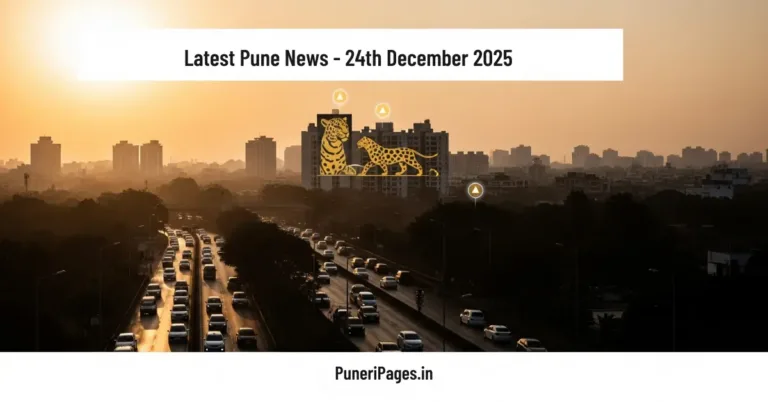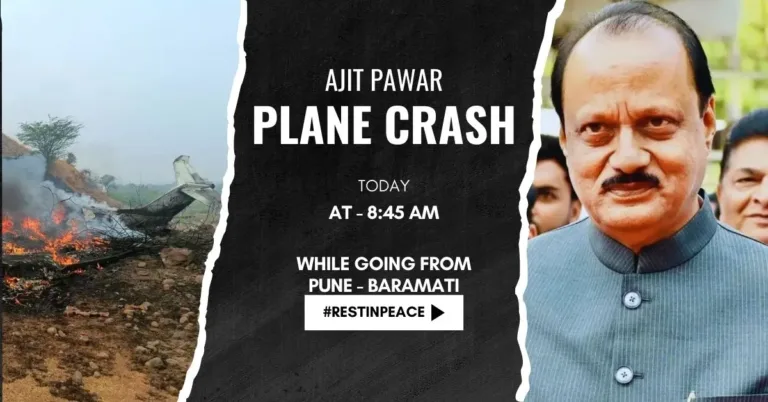
A silent classroom, a louder message: Pune's public medical college is losing faculty while students are left with little guidance. — puneripages.in
By Prashant for PuneriPages.in
You’re sitting in a doctor’s office five years from now, hoping the young physician in front of you knows what they’re doing. But what if they were never properly trained—because the college that was supposed to teach them barely had any teachers?
That’s not a fictional future. It’s the very real situation unfolding right now at Pune’s PMC-run medical college.
Students at the Bharat Ratna Atal Bihari Vajpayee Medical College and Hospital have raised the alarm. They’re not just struggling to attend classes—they’re missing the very experiences that shape them into future doctors: hands-on patient exposure and clinical training. And the root of the problem? A glaring shortage of qualified faculty.
Table of Contents
A Student’s Day, Minus the Mentors
Imagine waking up at 6 am, grabbing your coffee, and heading to the hospital ward. You’re hoping to learn something new, observe a procedure, maybe even get your hands involved under supervision. But when you reach, the department is either closed, or the one available doctor is swamped with patients and can’t spare time for teaching.
That’s the reality many students are living today. Some say they’ve gone entire weeks without getting adequate clinical exposure. One student shared, “In our surgery rotation, we should’ve seen at least a dozen procedures by now. I’ve seen maybe three. That’s not just disappointing—it’s terrifying.”
More Than a Shortage—It’s a System Failure
On paper, every medical college in India must follow the National Medical Commission (NMC) norms, which dictate strict student-to-teacher ratios. For a batch of this size, there should be dozens of faculty members spread across departments. But as of now, PMC’s medical college is severely understaffed, especially in major disciplines like medicine, surgery, and pediatrics.
Why? Well, that’s where it gets murky.
Faculty say the hiring process is slow and bureaucratic. “It takes months to get through the paperwork,” said a source familiar with the recruitment. “By the time you’re ready to make an offer, the good candidates are gone—snapped up by private hospitals offering better pay and working conditions.”
That’s another red flag: salaries. Compared to private colleges or corporate hospitals, the PMC medical college offers significantly lower compensation, fewer research opportunities, and minimal incentives. It’s no surprise that attracting and retaining top talent has become a Herculean task.
The Bigger Picture: Your Health Is on the Line
It’s easy to dismiss this as “just a student issue,” but here’s the truth—under-trained students today become under-prepared doctors tomorrow. That means more diagnostic errors, less confidence in critical procedures, and a fragile public healthcare system for all of us.
And the consequences are already starting to show. Some students have confessed to feeling unprepared even for their internal assessments. One told us, “We read from books, yes, but this is medicine. It’s about real people. If we don’t touch, observe, and treat now—how will we do it alone later?”
Is Anyone Listening?
When reached for comment, the college administration admitted that the shortage exists and claimed that hiring was “in process.” But students say they’ve been hearing that for months. There’s no clear timeline. No roadmap. Just vague reassurances.
The Pune Municipal Corporation (PMC), which runs the college, must do more than just acknowledge the issue. This is a public health emergency in slow motion. If they don’t act now—with urgency and transparency—they’ll be putting the future of both students and patients at risk.
What Needs to Happen Now
Here’s what can fix this, if done immediately:
- Fast-Track Hiring: Cut the red tape. Prioritize filling faculty posts across all major departments.
- Competitive Salaries: Offer packages that actually attract experts from the medical field.
- Clinical Partnerships: If patient flow is low in the college hospital, tie up with nearby hospitals to ensure students get exposure.
- Accountability: Publish monthly reports on faculty hiring and department-wise vacancies.
Final Thoughts: This Isn’t Just Their Fight
As someone writing from Pune and seeing this unfold, I can’t help but feel frustrated. These students are not asking for luxuries. They just want the training they were promised. And we, the public, should care—because the stethoscope they wear tomorrow might be listening to our heartbeat.
Let’s not wait for a crisis. Let’s act now.






